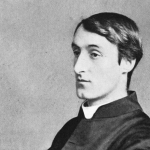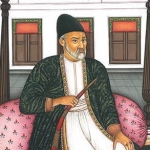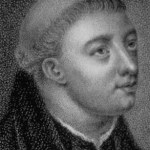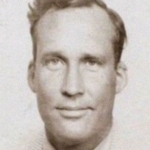To Mary — —
And I return to thee, mine own heart's home;
As to his Queen some victor Knight of Faëry,
Earning bright spoils for her inchanted dome;
Nor thou disdain, that ere my fame become
If it indeed may cleave its natal gloom,
Its doubtful promise thus I would unite
With thy beloved name, thou Child of love and light.
2.
Is ended,—and the fruit is at thy feet!
No longer where the woods to frame a bower
With interlaced branches mix and meet,
Or where with sound like many voices sweet,
Water-falls leap among wild islands green,
Which framed for my lone boat a lone retreat
Of moss-grown trees and weeds, shall I be seen:
But beside thee, where still my heart has ever been.
The clouds which wrap this world from youth did pass.
I do remember well the hour which burst
My spirit's sleep: a fresh May-dawn it was,
When I walked forth upon the glittering grass,
And wept, I knew not why; until there rose
From the near school-room, voices, that, alas!
Were but one echo from a world of woes—
The harsh and grating strife of tyrants and of foes.
4.
—But none was near to mock my streaming eyes,
Which poured their warm drops on the sunny ground—
So without shame, I spake:—"I will be wise,
And just, and free, and mild, if in me lies
Such power, for I grow weary to behold
The selfish and the strong still tyrannise
Without reproach or check." I then controuled
My tears, my heart grew calm, and I was meek and bold.
5.
Heap knowledge from forbidden mines of lore,
Yet nothing that my tyrants knew or taught
I cared to learn, but from that secret store
Wrought linked armour for my soul, before
It might walk forth to war among mankind;
Thus power and hope were strengthened more and more
Within me, till there came upon my mind
A sense of loneliness, a thirst with which I pined.
6.
To those who seek all sympathies in one!—
Such once I sought in vain; then black despair,
The shadow of a starless night, was thrown
Over the world in which I moved alone:—
Yet never found I one not false to me,
Hard hearts, and cold, like weights of icy stone
Which crushed and withered mine, that could not be
Aught but a lifeless clog, until revived by thee.
7.
Fell, like bright spring upon some herbless plain;
How beautiful and calm and free thou wert
In thy young wisdom, when the mortal chain
Of Custom thou didst burst and rend in twain,
And walked as free as light the clouds among,
Which many an envious slave then breathed in vain
From his dim dungeon, and my spirit sprung
To meet thee from the woes which had begirt it long.
8.
Although I trod the paths of high intent,
I journeyed now: no more companionless,
Where solitude is like despair, I went.—
There is the wisdom of a stern content
When poverty can blight the just and good,
When Infamy dares mock the innocent,
And cherished friends turn with the multitude
To trample: this was ours, and we unshaken stood!
9.
And with inconstant fortune, friends return;
Though suffering leaves the knowledge and the power
Which says:—Let scorn be not repaid with scorn.
And from thy side two gentle babes are born
To fill our home with smiles, and thus are we
Most fortunate beneath life's beaming morn;
And these delights, and thou, have been to me
The parents of the song I consecrate to thee.
10.
But strike the prelude of a loftier strain?
Or, must the lyre on which my spirit lingers
Soon pause in silence, ne'er to sound again,
Though it might shake the Anarch Custom's reign,
And charm the minds of men to Truth's own sway
Holier than was Amphion's? I would fain
Reply in hope—but I am worn away,
And death and Love are yet contending for their prey.
11.
time may interpret to his silent years.
Yet in the paleness of thy thoughtful cheek,
And in the light thine ample forehead wears,
And in thy sweetest smiles, and in thy tears,
And in thy gentle speech, a prophecy
Is whispered, to subdue my fondest fears:
And through thine eyes, even in thy soul I see
A lamp of vestal fire burning internally.
Of glorious parents, thou aspiring Child.
I wonder not—for One then left this earth
Whose life was like a setting planet mild
Which clothed thee in the radiance undefiled
Of its departing glory; still her fame
Shines on thee, through the tempests dark and wild
Which shake these latter days; and thou canst claim
The shelter, from thy Sire, of an immortal name.
13.
Which was the echo of three thousand years;
And the tumultuous world stood mute to hear it,
As some lone man who in a desart hears
The music of his home:—unwonted fears
Fell on the pale oppressors of our race,
And Faith, and Custom, and low-thoughted cares,
Like thunder-stricken dragons, for a space
Left the torn human heart, their food and dwelling-place.
14.
If there must be no response to my cry—
If men must rise and stamp with fury blind
On his pure name who loves them,—thou and I,
Sweet Friend! can look from our tranquillity
Like lamps into the world's tempestuous night,—
Two tranquil stars, while clouds are passing by
Which wrap them from the foundering seaman's sight,
That burn from year to year with unextinguished light.





















Comment form: